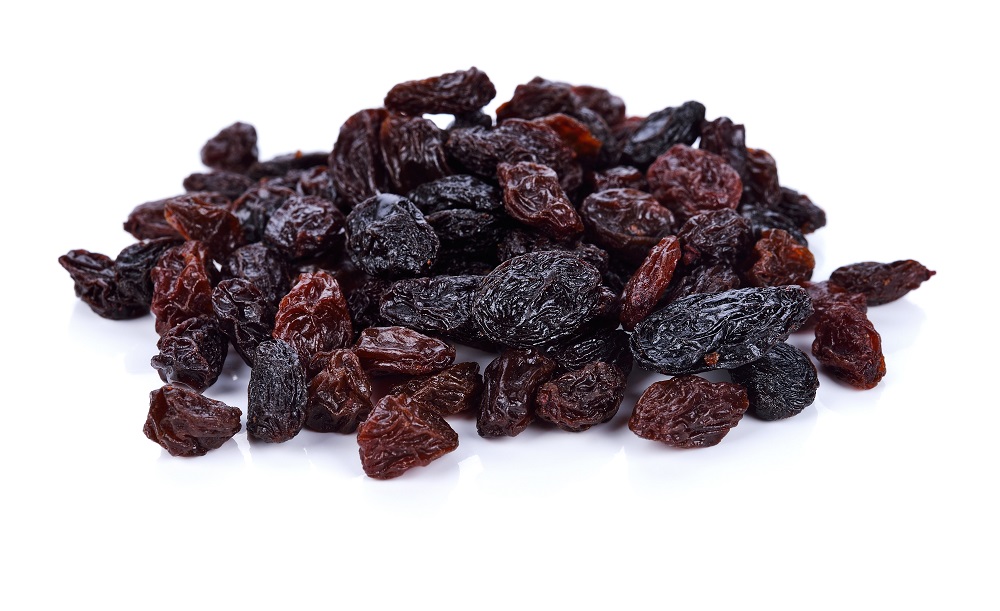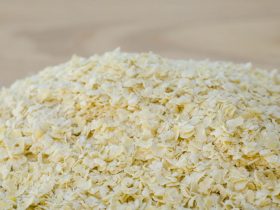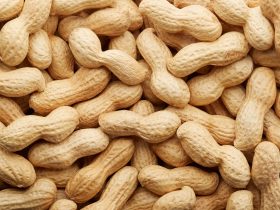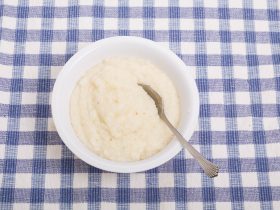Raisins are a sticky-sweet dried fruit originally found in the form of grapes. Often consumed as a sugary snack or as a garnish, raisins are found throughout the world owing to their ease of transport and relatively long shelf-life.
Raisins will keep for as long a time as twelve months because of their low moisture content – a factor of which also allows them to be frozen with minimal damage. Should you choose to utilize another storage method, however, the exact length of time your raisins will be shelf-stable will be shorter1.
How Long Do Raisins Last in the Pantry?
Raisins, being already dehydrated and relatively inhospitable to most forms of microorganisms2, store quite well when placed in the pantry or cupboard.
The primary reason raisins would begin to expire when stored in these areas is either an excess amount of relative moisture re-hydrating the raisins or the presence of already-developed cultures of fungi near the fruit.

In order to avoid these sources of spoilage, it is important to store the raisins in an air-tight container free of moisture. If storing the raisins from a colder area, it is best to allow them to return to room temperature before storing, as the difference in temperatures will trigger the condensation of water within the walls of the storage container.
Raisins stored in the ideal conditions will last approximately twelve months, so long as no outside factors compromise them.
How Long Do Raisins Last in the Fridge?
Owing to the low water content of raisins, choosing to refrigerate them does not alter their shelf-life very much in comparison to simply storing it out in your pantry.
The benefit to storing your raisins in the fridge comes with the innate temperature and humidity control present in certain refrigeration devices found in commercial stores. As humidity and temperature must be kept stable at a certain level in order to reduce the development of microorganisms and degradation of the fruit’s quality, a refrigerator can act as a small-scale controlled storage environment.
Just like if the raisins were stored in the pantry, they will last an approximate twelve months.
How Do You Freeze Raisins for Storage?
In order to freeze raisins for the longest possible amount of time, you will require a parchment or wax-paper lined baking sheet, plastic cling film or similar material, a resealable freezer-safe plastic bag and a freezer capable of reaching freezing temperatures.
First, spread the raisins across your lined baking sheet, ensuring that no large clumps of fruit form, as these may freeze together into a solid mass which will become difficult to separate.
Stretch the plastic film across the surface of the raisins so as to seal them inside. This step is entirely optional, but will prevent the raisins from absorbing any scents from other objects that may be present in the freezer.
Place the baking sheet with the raisins in the freezer for two hours. This is to ensure that the raisins will be easily separated and retrieved from their storage bag after freezing for some time.
After two hours have passed, simply remove the baking tray from the freezer and transfer the raisins to your resealable freezer bag. Push out as much air as possible from within the bag and place it in the deepest part of the freezer.
Freezing raisins like this will allow them to keep their best quality for up to one and a half years.
Will Freezing Raisins Affect their Quality?
Freezing raisins does not affect their quality in any significant capacity. This is because, when organic produce is frozen, any water present around or within the cells will crystallize and expand, rupturing the cell walls and other biological structures.
When this occurs in organic produce, it is most apparent to us through a loss of quality in texture as well as a decrease in the strength of flavor that it presents. This is most apparent in fruit and vegetables that have high water content, such as lettuce or watermelon.
Raisins, on the other hand, do not suffer from this particular effect because of their low water content of only 15%3.
Are Gold and Black Raisins Stored in the Same Way?
Gold and black raisins are, unsurprisingly, simply the dehydrated versions of white and red grapes. While there is some debate on the difference between the two species, in the end, this distinction does not change the storage methods required for storing their dehydrated forms.
Whether gold or black, simply follow the storage methods mentioned elsewhere in this article in order to preserve them for the longest possible time.
How to Know if Raisins Have Gone Bad
Because most raisins are wrinkled and dry, it can be difficult to determine whether they have begun to spoil or not. This is especially difficult if stored in the freezer, as they may still be frozen and as such are still hard to the touch.
The easiest method to determine whether raisins are spoiled is by smell. If they have developed a fermented or acidic smell, this often indicates that yeast fungi have begun to colonize the raisins. If you notice an odor like this, it is best to discard the entire batch of raisins, as fungi can spread very quickly if the spores are contained within a container.
Occasionally, raisins may grow hard and brittle. This is likely due to the raisins being subjected to excess air-flow, and does not indicate that they are expired. It does, however, mean that they have been stored improperly. Should your raisins become hard and brittle, they may still be used in cooking dishes and baking if you so desire.
References
1. Unknown Author (July 2016) United States Standards for Grades of Processed Raisins, US Department of Agriculture
2. J.P. Zoffoli, B.A. Latorre (2011). 9 – Table grape (Vitis vinifera L.) Woodhead Publishing series, University of Washington D.C
3. Unknown Author. (January 2019) “Raisins, dark, seedless (Includes foods for USDA’s Food Distribution Program)” U.S. Department of Agriculture FoodData Central https://fdc.nal.usda.gov/fdc-app.html#/food-details/168165/nutrients





Hi, I'm Dom
Dom Eats was started to help other people fall in love with food. While cooking can feel intimidating, it doesn't have to be.